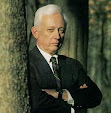Sir:
In my forty years in
information security I have come to have many colleagues in the intelligence
community. I find them to be brilliant
and noble. I have also found them to be
myopic, artful, and zealous. I have
watched their testimony before both the House and Senate judiciary
committees. While I have been impressed
by their testimony, I have been less impressed by the questioning. The testimony has been carefully rehearsed
and very consistent. Where the questioning
has not been sympathetic, it has been inept.
Even those legislators who recognize that the testimony is misleading
are prevented by secrecy and decorum from asking the questions that might
really inform the citizens or even saying so when a witness lies under
oath.
·
Here is a short list of
questions that I would like put to the administration to answer under oath.
- Does GCHQ target American citizens on behalf of the US government? What did we get for our $152M?
- Does the NSA target citizens of the United Kingdom? Does it do so on behalf of the UK government?
- What programs, besides the collection of all telephone call records, does the NSA operate under USA Patriot Act, Section 215? What programs, other than PRISM, does it operate under the FISA, Section 702? Are we going to be surprised by more revelations?
- NSA has admitted that a query to the call records database implicates not only those connected directly to the "seed" number but all those associated with it to "three hops." What is the largest number of phone numbers implicated by any single query? How many subscribers have been implicated by the hundreds of queries made since the inception of the program? Is it possible that there is any American citizen that has not been swept up in this huge drag net?
- Given the density of modern digital storage, e.g., a terabyte in a shirt pocket for $100, what is NSA storing that requires 24 acres of floor space in Utah?
- What percentage of the e-mail that crosses our borders does NSA collect? Store? Analyze? Disseminate to other agencies of government?
- Given the demonstrations by Edward Snowden and Bradley Manning as to the breadth and depth of their access, how can we rely upon the assurances of NSA that they can protect us from abuse of the information they collect? Doesn't the mere collection of all this information invite, not to say guarantee, abuse?
- Doesn't the mammoth budget ($75B in 2t012?) of NSA justify the conclusion that NSA operates on the premise that "Because we can, we must," and without any regard for efficiency? Are they not spending far more than doing nothing would cost?
- Does not the Bush "Warrantless Surveillance Program" demonstrate that citizens cannot rely upon bureaucrats and spies to protect us from over-zealous, not to say rogue, politicians? Are we building capabilities now that will empower politicians of the future?
- Does the NSA require a warrant before they target US citizens on behalf of the FBI? Secret Service? DEA? MI5? MI6?
- Does the NSA protect American citizens from surveillance by their peers and colleagues in other nations?
- Is information passed to the FBI by NSA ever, usually, sufficient for the issuance of a wiretap warrant? A National Security Letter?
- Do the intelligence agencies selectively share intelligence with legislators in order to curry support?



